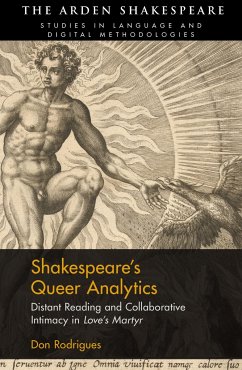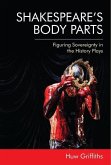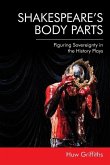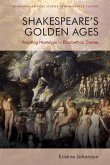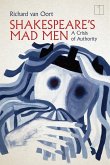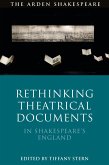"What led Shakespeare to write his most cryptic poem, "The Phoenix and Turtle"? Does the Phoenix represent Queen Elizabeth, on the verge of death as Shakespeare wrote? Is the Earl of Essex, recently executed for treason, the Turtledove, lover of the Phoenix? Questions such as these dominate scholarship of both Shakespeare's poem and the book in which it first appeared: Robert Chester's enigmatic collection of verse, Love's Martyr (1601), where Shakespeare's allegory sits next to erotic love lyrics by Ben Jonson, George Chapman, and John Marston, as well as work by the much lesser-known Chester. Don Rodrigues critiques and revises traditional computational attribution studies by integrating the insights of queer theory to a study of Love's Martyr. A book deeply engaged in current debates in computational literary studies, it is particularly attuned to questions of non-normativity, deviation, and departures from style when assessing stylistic patterns. Gathering insights from decades of computational and traditional analyses, it presents, most radically, data that supports the once-outlandish theory that Shakespeare may have had a significant hand in editing works signed by Chester. At the same time, this book insists on the fundamentally collaborative nature of production in Love's Martyr. Shakespeare's Queer Analytics is a much-needed methodological intervention in computational attribution studies while developing a compelling account of how collaborative textual production might work among men during the early modern period. It articulates what this book calls queer analytics: an approach to literary analysis that joins the non-normative close reading of queer theory to the distant attention of computational literary studies, highlighting patterns that more traditional readings overlook or ignore"--
Hinweis: Dieser Artikel kann nur an eine deutsche Lieferadresse ausgeliefert werden.
Hinweis: Dieser Artikel kann nur an eine deutsche Lieferadresse ausgeliefert werden.

